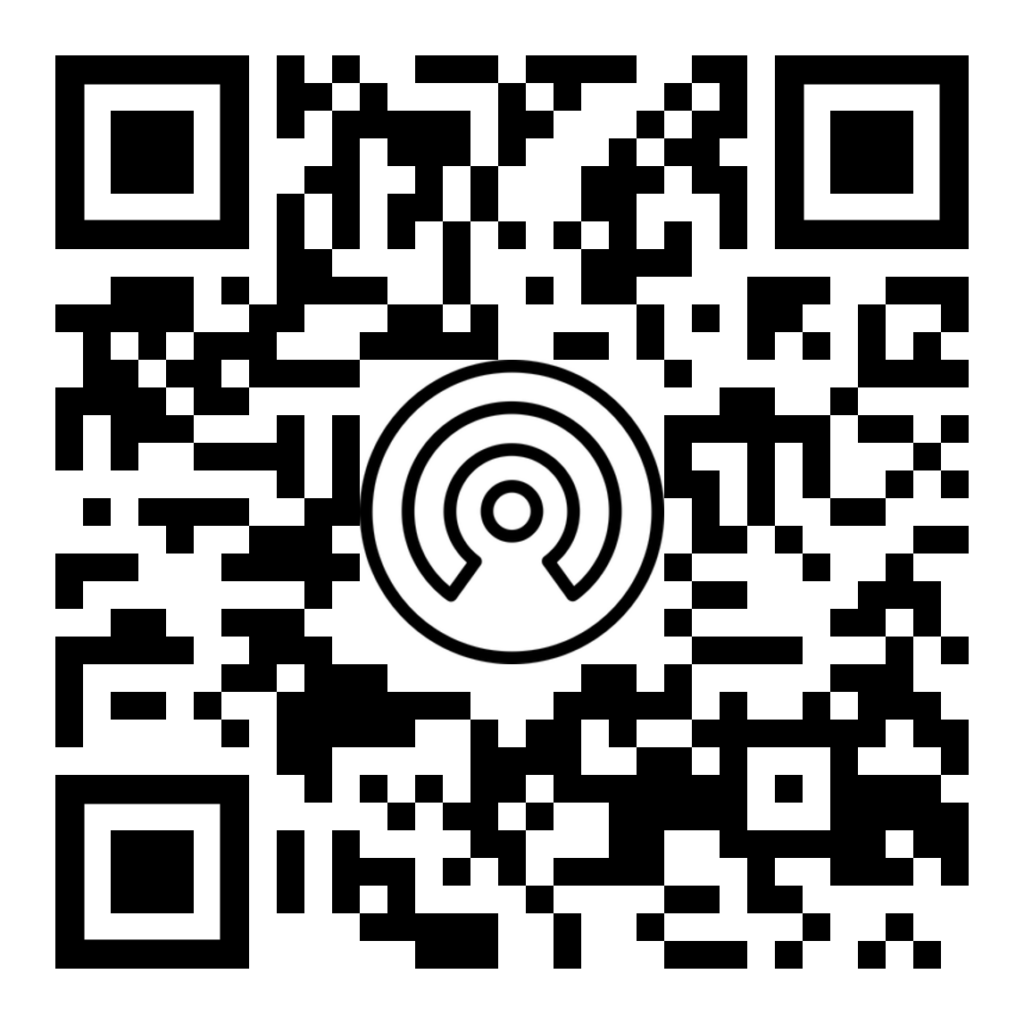Speakers:
Sé Reed: 28.75%
Jason Tucker: 11.06%
Steve Zehngut: 11.97%
Jason Cosper: 13.12%
Brian Gardner: 21.41%
Bill Erickson: 13.68%
Sé Reed:[00:00:00]
5 4, 3, 3, 2, 1.
Jason Tucker:[00:00:09]
Number 13 of WP water cooler, full site editor for agencies.
Sé Reed:[00:00:15]
Yeah, that’s right. We’re doing it.
Jason Tucker:[00:00:19]
Jason Tucker, you can find me at Jason Tucker on Twitter.
Steve Zehngut:[00:00:25]
I’m Steve Zehngut. I’m the founder of Zeek interactive, and I run the OC WordPress meetup.
Sé Reed:[00:00:31]
No birds, a little bird. I am Se Reed. I make WordPress. Sure. I’d say mixed media.
Steve Zehngut:[00:00:39]
Easy for
Jason Cosper:[00:00:40]
And you will know who it is. It’s your boy, Jason Cosper, AKA back at it again on the world’s most influential WordPress podcast.
Sé Reed:[00:00:47]
You heard it here first.
Jason Tucker:[00:00:48]
And the influential podcast can be found on apple podcasts, Google podcasts, I guess Spotify. Yeah.
Sé Reed:[00:00:55]
shoot. I need to make some sort of decision. Hey,
Jason Tucker:[00:00:59]
ever since that Spotify thing bad, I’ve just like I get Spotify and everything.
Sé Reed:[00:01:03]
I forgot where I left. Did you see Steve had a little bird this time?
Steve Zehngut:[00:01:07]
yeah. I saw that.
Jason Tucker:[00:01:08]
Steve had a little bird? I just want to make sure I see about a bird on it.
Sé Reed:[00:01:11]
put a little bird on it.
Sé Reed:[00:01:13]
It’s better than a big bird.
Steve Zehngut:[00:01:15]
I appreciate it. What can we help?
Jason Tucker:[00:01:17]
So have Brian Gardner and we have bill Erickson on the show today. And we started out talking about this stuff last week on the show. And then on Twitter, we started discussing this and then I was like, you know what
Sé Reed:[00:01:35]
There’s more.
Jason Tucker:[00:01:36]
You can only put so much in a tweet and you can make bill ended up having to do a thread just to be able to like, answer a question.
Jason Tucker:[00:01:42]
And we’re like, you know what? Let’s like, get on the show and talk.
Sé Reed:[00:01:47]
Talk it out and talk
Steve Zehngut:[00:01:49]
Welcome guys.
Brian Gardner:[00:01:51]
Thanks for having us.
Sé Reed:[00:01:54]
I just want to point out real quick. Just why we all have, a year’s in our names here is because during the pre-show we realized we were a wall, been in WordPress a very long time. And the math that I did not do properly is 98 years.
Jason Tucker:[00:02:11]
Wow.
Sé Reed:[00:02:13]
years of collective WordPress experience.
Steve Zehngut:[00:02:15]
We all had trouble with this math, with this equation, simple addition, but.
Sé Reed:[00:02:19]
We don’t really want it here. It is. So that’s probably the problem.
Brian Gardner:[00:02:23]
So Betty White outlived us all here. Anyway, I don’t know what that means other than are we curmudgeons or are we like elders?
Jason Tucker:[00:02:33]
the last couple of years, we’ve been.
Steve Zehngut:[00:02:35]
Dinosaur.
Brian Gardner:[00:02:36]
royalty.
Jason Cosper:[00:02:40]
Sure.
Sé Reed:[00:02:40]
At least the ability, if nothing else, hierarchy of feudalism. We do have a dictator, so I guess that would be the proper structure.
Jason Tucker:[00:02:50]
This is true. This is true. Yeah. So we called you all We have 17 here today
Jason Tucker:[00:02:59]
and talk about Steve’s intervention. So no, but last,
Brian Gardner:[00:03:05]
Oh,
Steve Zehngut:[00:03:06]
We only have a half an hour.
Jason Tucker:[00:03:08]
yeah, we haven’t half an hour, yeah. Last week I asked Steve the question of agency work and using full site editor as an agency.
Jason Tucker:[00:03:19]
And I know you folks either run agencies or you’re doing agency type work small, medium, or large. Where are we at with full site editor and agency work? And are we even getting close to touching it?
Sé Reed:[00:03:36]
We should name it?
Sé Reed:[00:03:37]
What is this land? What would you.
Brian Gardner:[00:03:42]
Land of misfit toys.
Sé Reed:[00:03:47]
That actually has so many layers to it. I was good right out of the gate.
Jason Tucker:[00:03:54]
What about you, Brian, where we’re, where are you at on that? And we’ll just do a couple of minutes of this real quick. And then we’ll really dive into this.
Brian Gardner:[00:04:03]
Yeah. Obviously I’m not, I think of all here, I’m the least one involved directly as an agency. I don’t freelance. I’m not part of an agency, but I am a huge proponent of false light editing. Or for WP engine and agencies are really important to us and our business model. So I come at it from that perspective, what can I learn from those who aren’t using full site editing?
Brian Gardner:[00:04:28]
How can we make it easier for them to use and so on?
Jason Tucker:[00:04:32]
makes Sense.
Sé Reed:[00:04:33]
where all the people who have sites on your services really? That is
Brian Gardner:[00:04:37]
Correct answer.
Jason Tucker:[00:04:41]
What about you bill?
Bill Erickson:[00:04:43]
Yeah. So in December, our team spent more time digging into the more recent stuff in WordPress, just cause we had a little bit of downtime updating our starter themes. We basically rebuilt our whole design system around theme dot Jaison. So we’re like super excited about that. We also played around with full site editing and it’s definitely not ready for client work.
Bill Erickson:[00:05:06]
And I also don’t know if. have a hard time seeing a time when it would make sense in an agency world, just because it’s not really aligned with the kind of work we’re doing. I think it’s a great tool for the DIY. Wires gives them a lot more power to design their own site without having to hire an agency.
Bill Erickson:[00:05:26]
But on the agency side, I haven’t really see where it would bring value to the types of stuff we’re producing for our clients.
Steve Zehngut:[00:05:33]
Part of my answer last week was from an agency perspective is I think the first question I have to ask is, do you want to give your clients that level of control to to mess up their own site? I’m going to, yeah. I’m
Steve Zehngut:[00:05:48]
I’m not I’m actually pulling some punches. When I say that, I was saying, I’m not going to pull any punches I did, but go ahead and say.
Sé Reed:[00:05:55]
as you were saying it, you were playing the pens. You’re like, I’m not
Steve Zehngut:[00:05:57]
Yes.
Sé Reed:[00:06:00]
I think about the block, there’s this weird, like convergence of all of these things, right? Full site editing is somehow Gutenberg, but like part of this path to full site editing, but. Like the idea of like block patterns, and layout that you can give, like pre-assigned layouts that you can give to your clients. That makes sense to me, from an editor, from a, from an agency perspective, from a me having my clients have the ability to throw up a layout for a new program they’re doing, or put out some special thing they want to make an announcement for, or make a column or something.
Sé Reed:[00:06:36]
So I think that. That is great. But how does that translate? I’m really trying, I’ve been trying to wrap my mind around that, how that translates into theme parts, right? Or template parts and what even understanding the context of what that is, as opposed to a block pattern, right?
Sé Reed:[00:06:59]
Is there a case where an agency is making what micro-sites with a different header, like what, who is even changing their headers? Let alone
Steve Zehngut:[00:07:09]
That’s what I was getting at. I think all the stuff that you said is valid to and those tools are important to give your clients, but you want them controlling the entire site or a part of a site. You have, you have to give them some guard rails to work with them. So that they there’s less for them to break.
Sé Reed:[00:07:27]
like page templates you can make a blank page. You can make alternate headers and all that stuff is just like ready to go because. Clients don’t want to build it. What’s the difference? This is, I find the S th this is what I’m finding is it’s like redundant, right?
Sé Reed:[00:07:42]
We’ve got page templates. We’ve got block patterns. Now we’ve got all this control. What is this adding I’m not I’m.
Brian Gardner:[00:07:53]
It’s adding all of that control that we, with our a hundred years of knowledge, no. Putting it into the hands of people who have a hundred days worth of knowledge. And I think bill hit on this, that it, I think WordPress is so big that it can actually allow both to coexist, with the backward compatibility historicalness of WordPress with the opting into full site editing for themes.
Brian Gardner:[00:08:17]
Like you allow agencies to work with it off or just not opted into, and you allow these new things into the hands of people who can not build a page template NPS.
Bill Erickson:[00:08:27]
I’d say no code option for building a site without having to use a page builder plugin. So yeah, I think it’s, it really enables a lot of people who want that, who don’t have that ability. They don’t know PHP. They haven’t been building WordPress sites for a long time. They can do a lot more now.
Bill Erickson:[00:08:41]
But again, like Steve was saying, we don’t necessarily need that at the agency level because our clients aren’t trying to build their own websites. They’re hiring a professional to set things up for them so that they don’t break it.
Sé Reed:[00:08:51]
they don’t have to they don’t really, they don’t even want that power. Most of my clients don’t even know it exists. So they don’t want to play with in the backend.
Sé Reed:[00:09:02]
so abstracted, even from the, and now with like headless and whatever you really can abstract from, you can block out everything you need to block out. But, okay. Here’s my question, given all of that, does this belong in core? If it’s really something that a good chunk of users are just immediately going to turn off.
Brian Gardner:[00:09:26]
Given the market share,
Bill Erickson:[00:09:27]
right.
Brian Gardner:[00:09:28]
it’s opt in from a theme perspective, but you have to understand that this is like a Wix competitor. So this is all targeting the people that essentially don’t have the budgets for agency work.
Sé Reed:[00:09:40]
but the thing is, I don’t know. I don’t know if you’ve used a Wix or Squarespace. I’m assuming I’ve gone in there and set up sites. This ain’t it. This is not a good and I It’s.
Sé Reed:[00:09:56]
not a yet. Okay. So then we’re back to the question of why are we putting it in core and trumpeting it as if it is ready and pushing it to everyone?
Jason Cosper:[00:10:08]
Yeah. It’s I really feel like it’s the more eyes that are on it. The more people, because right now, basically to borrow a metaphor we’re changing the engine on a plane while it’s in flight.
Sé Reed:[00:10:22]
that. It’s not a wagon on a hill. It’s a place that is way more extreme and probably more accurate.
Jason Cosper:[00:10:29]
Yeah.
Jason Cosper:[00:10:30]
We are basically, and honestly the full site editor for all of us with all of our years of WordPress experience, honestly not built for us. This is an end-user thing and we are not end-users. We have quit being end-users a long damn time ago.
Sé Reed:[00:10:51]
Aye. Aye. Aye. At
Steve Zehngut:[00:10:54]
I think that’s why
Steve Zehngut:[00:10:55]
The this is not for end users.
Steve Zehngut:[00:10:58]
I’ve lost connection.
Sé Reed:[00:10:59]
Oh, okay. We hear you.
Steve Zehngut:[00:11:02]
yeah, I’m here.
Sé Reed:[00:11:04]
We can hear you.
Steve Zehngut:[00:11:05]
Okay. I think that’s why the topic of this show was written the way it was. Because the question is there any use for this in agents in the agency world?
Sé Reed:[00:11:18]
So I build for my clients sites that they’re able to using page builders and this has just become part of the workflow because they needed that control before Devi BeaverBuilder, they’ve all been doing. Elementor has been doing this for a while now and doing it really well and giving the clients that need, that control, and they have the appropriate locks and things that you can do to provide that to your clients.
Sé Reed:[00:11:47]
So It’s not like this doesn’t exist, right? It does have, it has an existing, so I don’t but I don’t think that it is meant for the endings or have you, we’ve all gone in there.
Jason Cosper:[00:11:58]
not meant for the end user.
Sé Reed:[00:12:00]
part is that’s not
Jason Cosper:[00:12:02]
meant for an end user. It’s not meant for an end user now.
Sé Reed:[00:12:08]
that’s so annoying.
Jason Tucker:[00:12:09]
But it doesn’t make sense to me is like, why,
Sé Reed:[00:12:12]
I like, this.
Jason Tucker:[00:12:13]
like, why does that stuff have to exist then? Like, why didn’t we just change the whole thing? So we’re not having to have template parts and not having to have just have a header and footer and just call it a day. Like why does somebody cat catalog need to have all this.
Steve Zehngut:[00:12:28]
And I think the danger in releasing it out to us as as I think costs were put at great as a testing as a testing tool is if somebody goes in there and starts to try to use it for what it’s designed for to build sites it’s going to be broken, it’s going to feel broken and the perception is going to be at that point.
Steve Zehngut:[00:12:47]
WordPress has broken.
Sé Reed:[00:12:49]
which seems to happen every time. I don’t know, like this happened with five point out. We’re like, oh, it wasn’t really ready, but we launched anyway because 5.0 and we’re PR camp us and whatever, but. Why are we releasing broken things and driving people, marketing it as if it’s this great new thing that’s not ready.
Sé Reed:[00:13:06]
And then I feel like we’re just making a bad case for that end user.
Steve Zehngut:[00:13:11]
I think it’s a question for Brian.
Brian Gardner:[00:13:14]
think it’s a definition of what is perceived as broken versus what is perceived as I don’t understand how to use, which are two totally different things or why I should use it. This certain thing, I will say that 5.9 dial back on and they pushed out. The launch even further to mitigate things, being broken or untested, and they dial back a lot of what full site editing was supposed to include.
Brian Gardner:[00:13:37]
And so I think,
Bill Erickson:[00:13:39]
broke a lot of things.
Brian Gardner:[00:13:41]
Just imagine what would have happened. Had they shipped on time or left things in tech? I think they’ve chosen. To say we’re going to ship and we’re going to fix along the way, because if you don’t, you just don’t get enough people testing it. Like WordPress beta, tester, plugin.
Brian Gardner:[00:13:56]
It has nobody using it. There’s, it’s the only way to get the amount of people to break things and expose the things that need to be fixed. And the hope is that at 6.0, it all comes together after three or four years and can be used in a way by various people. I will say this.
Brian Gardner:[00:14:16]
I think there’s a room. Absolutely. For black themes and patterns for agencies, I built frost as a wireframe sort of emulator, rapid prototyping tool. Like I could build layouts and sites and deploy it. And then the hope is to do then turn it all off. Use it to expedite my work. As a creator, as a developer, as an agency I can spin up sites in like literally five minutes because I’ve got the things built to import.
Brian Gardner:[00:14:43]
And then if you can do that in a way where then you just turn it off and I know there’s API lockdowns coming. We’re pressed, they have ears, they know that this is a thing. And so if like you can use it to build it and then turn it off and then hand it over. I think that’s part of the goal.
Jason Cosper:[00:14:58]
built three sites. And for us now, just little mini whatever sites and yeah it is a rapid prototyping tool. I handed it to some people who it was like the classic thing that you do when someone finds out that you make websites like. Yeah, I can do a website for your nonprofit.
Jason Cosper:[00:15:21]
I can do a website for your, whatever. Y I, I’ve turned around and I, and a couple discretion, my own edge, one for a friend’s nonprofit. And. It took me no time. Tucker has seen me building them and it all happens in like just a matter of an hour or two, like all my lunch break, I can get something like thrown together copy and paste the content from the old site.
Jason Cosper:[00:15:48]
Put it in something that looks good. That’s built in blocks and then we’re good to go.
Sé Reed:[00:15:55]
But then, so K pattern, block pattern. How is that? Not even redundant with template parts The two-tone it’s apples and oranges template parts are where patterns go.
Sé Reed:[00:16:06]
yeah. Yeah. I realized that having played with it, but in terms of use like it’s really just about. The archive pages and making old template pages essentially is what it is. And building those, which is agencies now are building those for clients and providing them right.
Sé Reed:[00:16:28]
Essentially.
Brian Gardner:[00:16:31]
Yeah, I’m not sure what the question is there.
Bill Erickson:[00:16:33]
Yeah. Right now the block editor lets you manage what’s in the content area and full site editing knowledge you manage what’s outside the content areas. So whether it’s header and footer or archive pages, it’s about just bringing the block editor to wider scope.
Sé Reed:[00:16:46]
I’m doing, I’m just trying, I really am trying to give it the benefit of the doubt in this case is what I’m trying to do. I’m like trying to be like where could it be useful? How could it be useful? I know you talked about that bill, like with versioning in your tweet, right? Yeah.
Sé Reed:[00:17:04]
I am struggling to imagine a scenario of full site editing that would work for a site you’re trying to hand off. That’s what I’m trying to say. This doesn’t in theory, like you would hand off it with set page templates, right? You’re not like, when are you going to give that power to someone who doesn’t want it, that this is what I’m trying to say, other than blocking.
Jason Tucker:[00:17:28]
Yeah. It’s almost if you’re going to use like leverage like revisions as a way of doing a snapshot of the site and that’s your version control. I I just don’t know what the right way to approach that as the second I read that from you bill, I was just like, oh yeah, like, how do you do this?
Jason Tucker:[00:17:49]
What is the right way to approach this? And I don’t think anyone’s even come up with the best way to do this in a full in-browser experience. Being able to do version control like that, other than there’s backing up from your house.
Bill Erickson:[00:18:06]
Yeah I don’t know. That’s why I’ve avoided that, that element. But yeah theoretically if there was some way for it to write to a file, rather than just saving it on the database, there’d be a way for us to syncs that more easily. But yeah, like the core problem there, there are a few problems that listed in the tweet, but that was one of them like we’d like to version control everything so that we can test in multiple environments.
Bill Erickson:[00:18:28]
And when we deploy code, we’re not overriding changes. Now that both with full site editing, but also I’m really excited about theme dot Jason, but and I like the idea of being able to override that. But now there’s no way for me to pull on that without having to pull down a full copy of the site.
Bill Erickson:[00:18:47]
So if the client changed their blue, like their primary color from blue to green, my, my version doesn’t have that in, is not aware of that change. So that is one area where it can be challenging for for agencies. Working with a client on implementing these things.
Brian Gardner:[00:19:04]
So I’ve got a great question here. So I’m going to ask, I’m just going to, I’m going to ask this question twice and I’m just going to look at the five faces just to see how you respond to the context in where, which I’m saying. Exactly.
Jason Tucker:[00:19:15]
it’s our first react video folks.
Brian Gardner:[00:19:19]
do you think? Yes, everybody get neutral. Okay. Question number one.
Brian Gardner:[00:19:23]
What do you think about full site editing? Question number two. Okay. Everybody wipe, wipe it clean. Here we go. We’re going to have some fun here. What do you think of full site editing when you could turn it off and clients whenever.
Brian Gardner:[00:19:39]
The only difference between the two is that we’re in between this Casper said we’re in flight. Like it’s still being worked on. And in six months from now, I think the full site editing.
Jason Cosper:[00:19:53]
yeah.
Brian Gardner:[00:19:53]
Thing, as it relates to the way agencies see it is going to be totally different once it’s done. And once it can be turned off and when you don’t have to turn that particular functionality over to a client and you can lock it down, I think it’s I think it, at that point everyone’s opinions look different.
Sé Reed:[00:20:09]
I totally agree. But wait, I have a, really, this is part of the article I’ve been trying to shape since last week, but I’m just going to talk about it here. Do you think that the amount of people we don’t have, all of the WordPress users who are using that will use full site editing is equal to 80%.
Jason Tucker:[00:20:27]
Oh,
Sé Reed:[00:20:28]
of you.
Steve Zehngut:[00:20:29]
No.
Jason Tucker:[00:20:30]
no.
Sé Reed:[00:20:32]
Bill. Okay. Therefore it does not meet WordPress’s own declaration of what should go into core that’s in my article, but we can have
Jason Tucker:[00:20:42]
think the customizer did a better job of that because at least it told you’re customizing things. Yeah.
Sé Reed:[00:20:49]
the theme options, panels of doom and try to at least cram them into something that had some some standard of UI between different options right there. Options and your theme panel and your theme customizer, but it wasn’t like in a completely different UI.
Sé Reed:[00:21:08]
So the theme customer I think was useful as is Gutenberg, but I, so th so I’m asking you this 80% question. If we all think it’s something you should be able to turn off, then why isn’t it just a plugin? Why isn’t it just wordpress.com you make your own full site editor. Like what the heck?
Steve Zehngut:[00:21:26]
Because.
Sé Reed:[00:21:27]
Cause reasons. I’m going to link to that, just so you guys know I’m not making random
Steve Zehngut:[00:21:35]
No I assumed. But I’m going to offer a different kind of a devil’s advocate viewpoint here. So the title of the show is a full site editing for agencies. I actually believe there are smaller agencies that are cranking out fast websites that would use this, it might be currently working in a beaver builder, divvy, or Elementor right.
Steve Zehngut:[00:21:56]
That would switch over to the some point because they need to they’re doing. Inexpensive websites and they need do crank out something as quick as possible without having an without doing any code. So there bill and I and say Carl’s kind of speaking from our viewpoint running our agency, but I think there, there are agencies that might use this.
Brian Gardner:[00:22:18]
Okay, here’s another, here’s a go ahead.
Jason Cosper:[00:22:21]
No, I was going to say something that I clumsily just tried to Lincoln are a group chat and managed to put on the the screen here. Matt has his whole thing about basically usage is the best oxygen for. For ideas his article from 12 years ago about shipping, like a 1.0, and actually just over my shoulder here I’ve got a little thing tacked up on my wall that says shitty and done is better than perfect.
Jason Cosper:[00:22:55]
And three months late, I think it’s like, why is this not a plugin? Why is this shipping in WordPress? It’s because they weren’t. To get people, the most people, the most eyeballs on this. And they know that it’s going to be a rough few years, but when we finally get this promise land of the actual false sign editor of block, the block editor, that it’s going to be better.
Jason Cosper:[00:23:25]
For users overall. I just think that it’s going to be a rough transition and we’re probably going to have a lot more episodes where we’re complaining about how
Bill Erickson:[00:23:35]
a lot. It’ll be a lot less rough than Gutenberg because it’s not going to affect every existing WordPress site. So like when they push that out now everyone’s editor changed unless you installed class getter when 6.0 comes out. No, one’s going to see full site editing because they don’t have a full site editing theme.
Bill Erickson:[00:23:52]
It’s.
Jason Cosper:[00:23:53]
Oh,
Sé Reed:[00:23:57]
word press launches and it’s like, you can edit your entire site. Like when you do the update, not the launch. Sorry. When you do the updates, like now you can do your entire thing. So if your clients do any updates where it shows them that screen at all, then what’s that.
Bill Erickson:[00:24:12]
Yeah.
Steve Zehngut:[00:24:13]
go ahead. Sorry. Sorry, bill.
Bill Erickson:[00:24:14]
Oh, I say it’s definitely going to be a conversation. That’s going to come up more often. We’ve had clients already asking us if the themes we’re building our full site editing compatible, and the moment that WordPress shifts and says full set editing now built in. It’s going to be a conversation, it’s not going to break things.
Steve Zehngut:[00:24:29]
Just add some CSS that hides that field, hide that,
Bill Erickson:[00:24:33]
I’d say announcement.
Steve Zehngut:[00:24:34]
hide the announcement. Look, that’s where I understand the whole move fast and break things philosophy. I get it. But let’s say something that bill something similar to what bill said we’re going to go through some, a bit of a roller coaster.
Steve Zehngut:[00:24:49]
We’re just coming off of the Gutenberg rollercoaster, right? We’re a little burned out at this point.
Jason Cosper:[00:24:54]
The Gutenberg rollercoaster hasn’t stopped. It’s yeah.
Steve Zehngut:[00:24:59]
We’re still in it. How much more can you add?
Brian Gardner:[00:25:02]
depends on what you’re defining as Gutenberg, because most people think Gutenberg is the editor, which it really isn’t any more. So the credit of WordPress they offloaded the development into an opt-in plugin to get people, to use it, to find out and as things get fixed and worked on, then it goes into course.
Brian Gardner:[00:25:22]
At least at that point, there’s still like an element of it’s gone off into.
Brian Gardner:[00:25:26]
Development mode before it just got shipped in core. So if it’s getting shipped in core, it means it’s gone through the plugin. A lot of people have been using it. A lot of eyes have been on it. So there’s almost like a baby step in terms of, it’s not just going from like idea to core and to.
Jason Cosper:[00:25:42]
Yeah. See I think out of everybody on the water cooler show, normally I think I’m probably the most bullish on Gutenberg and full site editing. Like I. The plugin installed on sites. I’m trying to like look at some of the bleeding edge stuff. I want to know what’s coming. But again that’s also part of my job is to know what’s coming to be tuned into that.
Steve Zehngut:[00:26:12]
And by the way I think we all share the same sentiment. We want the platform to grow, right? We’re not looking for the platform to stay stagnant. That’s not what we’re saying here.
Steve Zehngut:[00:26:23]
That’s all. I just was making a statement. That’s it? There’s no question that.
Jason Cosper:[00:26:28]
Okay. Brian was going to say something before I got us down this other conversational rabbit hole. So I’m interested. I might, my brain’s kind of itching to find out what he was going to say before. Since we only have about three minutes left.
Brian Gardner:[00:26:44]
So not with pretend like the billable time is not the issue here. If a client comes to me, or if I’m on the hook to fix something or help a client do something, and they say, can you add social media icons to my. Like old-school way of doing things. That’s like a 20 minute project. I got a register widget dare I gotta do all of these things like now.
Brian Gardner:[00:27:03]
And the way literally first of all, I’ll be able to do it like 15 seconds. And then it’ll take me another minute to show them how they can do it for the next time. So even though I understand all of the points that are being made here and you guys have agencies and there’s a lot of. And I get that.
Brian Gardner:[00:27:20]
I acknowledged that, but I also see the gold and what it’s allowing say what I think will become the 80% who want to use all of these things. When it’s ready, they’ll be able to do things that have historically taken forever or the inability to do it and put it in the hands of people who are the target audience.
Brian Gardner:[00:27:38]
Moving forward.
Steve Zehngut:[00:27:40]
By the
Sé Reed:[00:27:40]
not know how we’re going to do that. I have to say this. I do not know how we’re going to do that. If we’re building the entirety of full site editing on HTML comments
Steve Zehngut:[00:27:48]
But by the way, Brian can do that in 15 seconds because he’s on WP engine, other hosts that would take a minute and 15 seconds.
Sé Reed:[00:27:54]
definitely.
Steve Zehngut:[00:27:56]
We’ll plug small plug.
Brian Gardner:[00:27:57]
Let’s go.
Sé Reed:[00:28:00]
I started, I was serious over your joke. I like to joke better, I go ahead.
Jason Cosper:[00:28:07]
Please say,
Sé Reed:[00:28:09]
No, I said what I was going to say we’re just talking about, it’s going to get there. It’s going to get there. Is it going to get there in the HTML comments
Steve Zehngut:[00:28:18]
Jason, I think next week’s episode should be titled the WordPress database schema and the opportunities for improvement.
Jason Tucker:[00:28:25]
Are we really storing all this stuff and the content.
Sé Reed:[00:28:27]
Really that’s going to be the title of the episode. Do you bill? Really?
Bill Erickson:[00:28:33]
Yeah.
Sé Reed:[00:28:37]
I don’t.
Jason Cosper:[00:28:39]
I was going to say, since we’ve got about a minute left a bill, do you have anything to add from an agency perspective? I just want to give you a chance to.
Bill Erickson:[00:28:47]
Not with regards to the full site editing. It’ll be interesting to see where it comes. And over the next few years, the more. I like the idea of being able to empower people to make their own changes. That’s what brought me to WordPress. I got tired of editing, static, HTML pages, and I wanted to let them be able to manage their content.
Bill Erickson:[00:29:05]
This is a step in that direction. But but yeah, as it is now it’s not ready for client work for agencies once it gets to that point. It’ll be interesting to see what percentage of agencies adapt their workflow to align with it at which stick with the more traditional way where we’re building the classic themes.
Jason Cosper:[00:29:24]
For sure. I actually I think it’s really interesting since we’re pushing up against time, but I think I do want to say it’s really interesting. And I just remembered about Justin Satan’s posts about building the new page, lead.com and how they built that with the full site editor and mind you they’re handing it off to page.
Jason Cosper:[00:29:46]
Who does WordPress hosting? Like they’re the client to hand off a false light editing project to not necessarily a nonprofit or any other clients that I’m sure that we deal with on a day-to-day basis but
Sé Reed:[00:30:06]
I have one more thing I want to say.
Sé Reed:[00:30:07]
before the end of the show. I just want to ask a rhetorical question to have you think about amuse about possibly on Twitter. All of us, except see, obviously. Is it, if everyone turns it off and agencies start to build in one direction and the other DIY user whomever starts to build in another direction.
Sé Reed:[00:30:25]
Is that a fork? That’s my question. Rhetorical finish. Let it simmer
Steve Zehngut:[00:30:31]
Could it be a sport?
Brian Gardner:[00:30:35]
I think classic press already was a fork.
Sé Reed:[00:30:38]
classic, but we’re not going back to classic press. I want Gutenberg for my client.
Brian Gardner:[00:30:43]
we’ve got to force. Yeah.
Jason Tucker:[00:30:44]
as Steve would say, look at the time.
Steve Zehngut:[00:30:47]
Yeah, you should have ended right on spork. I should’ve given you a little,
Sé Reed:[00:30:52]
that was the good out.
Jason Tucker:[00:30:53]
Thank you all for hanging out with us. We really appreciate it. We’re looking forward to seeing what folks say in the comments and what they say in social media.
Steve Zehngut:[00:31:01]
that’s going to
Jason Tucker:[00:31:01]
to y’all later. You have a good one. Thanks for joining us. Hey, go over to WP water Corp com slash subscribe to this content and all the other content that we put out there.
Sé Reed:[00:31:14]
Let us know.
Jason Tucker:[00:31:15]
an audio podcast as well is a YouTube video show. So go take a look at us wherever you listen to podcasts. Talk to you later. Bye bye.









Leave a Reply